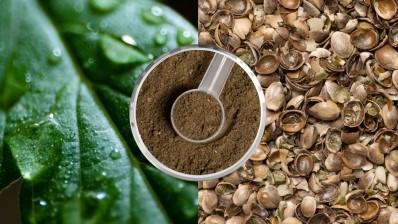Bioactives’ moment has arrived

Bioactives company Brightseed recently announced the creation of a ‘Bioactives Coalition’ aimed at advancing education and promoting science-backed bioactive compounds among health industries, consumers and policymakers.
The Bioactives Coalition plans to facilitate interactions among food and health system leaders who champion the adoption of bioactive compounds into US dietary guidelines. The Coalition also aims to educate on the mounting scientific evidence, advancements in research and discovery, and key perspectives to inform bioactive use and regulation in functional food, beverage and supplements.
Seize the moment
Jan-Willem Van Klinken, Brightseed’s SVP of Scientific and Medical Affairs, said that given the advancement in science and technology, the time is now to build a widely accepted consensus on the definition as well as role of bioactive compounds for integration into dietary guidelines or current regulatory frameworks.
“Brightseed formed the Bioactives Coalition because there is a movement building in scientific circles that affirm bioactives are essential to human health, and should be widely adopted into both our US dietary guidelines and in expanded nutrition frameworks. We are in a bioactive deficit crisis with 90% of Americans falling short of the daily intake recommendations for fruits and vegetables–the primary source of bioactive compounds,” Van Klinken told NutraIngredients-USA.
Today, the FDA does not currently provide a definition for bioactives, and although the importance of DHA, EPA, and omega 3s are recognized by the US dietary guidelines, the significance of other bioactives are yet to be highlighted. We see an opportunity to bring more evidence and insight forward to inform well-rounded nutrition standards. Attention to bioactives is one way to ensure that nutrition security can be attainable across all populations.”
In 2022, the Academy of Nutrition and Dietetics led the development of the first ever North
American guideline and daily intake recommendation for flavan-3-ols, a watershed moment for
the recognition of bioactives, which outlined 400-600 mg per day recommendation. The paper, co-authored by coalition member Dr. Taylor Wallace, serves as a majorframework in which future bioactives recommendations can be considered, as artificial intelligence is accelerating new health insights and expanding bioactive sources at a quickened pace.
Complexity a holdback
While bioactive compounds in plants and other natural sources are critical to human health, the complexity of their direct impact on human biology makes messaging challenging.
“Bioactives can be considered the ‘dark matter of nutrition’ because little is known about how they function in human biology to impact health. This lack of visibility has limited scientific understanding on how they can be activated in multiple applications for consumer health,” said Van Klinken.
Brightseed’s AI platform, Forager, makes predictions about the health benefits of a given compound. Brightseed combines AI with deep learning and omics analyses to discover which small molecules in plants hold the greatest benefit to human health.
“With new technologies like Brightseed’s Forager, the connections between bioactives and human health can be revealed at a much faster rate than ever before. For instance, Forager has mapped more than 4 million plant compounds, which is 40x more than what is in published scientific literature. To date, Forager has predicted over 30,000 bioactive compounds and their mechanisms across a dozen health areas. As the information on bioactives expands, so will our global understanding, with downstream impact to our food and health industries and ultimately, consumers,” noted Van Klinken.
Van Klinken said that tools like Forager are paving the way for nutrition to go beyond vitamins, minerals and proteins and begin including bioactives as an important part in health and modern medical education.
The coalition
Members include world-renowned researchers and experts working at the intersection of agriculture, food and health.
- Jed W. Fahey M.S., Sc.D – John Hopkins nutritional biochemist whose research on plant-based nutrition targets chronic disease prevention
- Mark Hyman, M.D. – founder and senior advisor for the Cleveland Clinic Center for Functional Medicine; founder and director of The UltraWellness Center; host of The Doctor’s Farmacy Podcast
- Taylor C. Wallace, Ph.D., CFS, FACN – principal and CEO of the Think Healthy Group; co-author of the first North American guideline and intake recommendation for flavan-3-ols
- Katie Stebbins – executive director of The Food & Nutrition Innovation Institute at Tufts University
- Ashlie Burkart, M.D., CM – Chief Scientific Officer at Germin8 Ventures; Associate with the Belfer Center's Environment and Natural Resources Program, Harvard Kennedy School
- Chef Robert E. Graham, M.D., MPH – Harvard-trained researcher and physician, public health scientist, food activist and founder of FRESH Medicine and FRESH Med U
- Jennifer Kelly, Ph.D. – nutrition director at Food Systems For The Future Science has long known that bioactive compounds in plants and other natural sources are critical to human health, yet due to the complexity of understanding their direct impact on human biology, they are often referred to as the “dark matter” of nutrition











